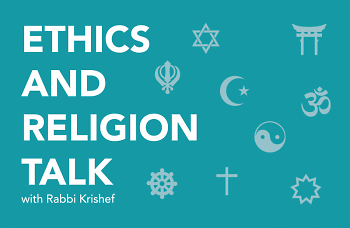The Reverend Colleen Squires, minister at All Souls Community Church of West Michigan, a Unitarian Universalist Congregation, responds:
"Affirmative Action was originally put into place because of racism and bias found in the admission practices of colleges and universities. While some improvements and advancements have been made to be more equitable, we still live in a racist society. It was a major setback to eliminate using race as a criteria in regards to admissions. This is really an issue of white fragility and an inability to recognize the privilege and advantages one race has over other races."
Father Kevin Niehoff, O.P., a Dominican priest who serves as Judicial Vicar, Diocese of Grand Rapids, responds:
"We learn from Scripture that “everyone is created in the image and likeness of God” (Gen 1:26). The Catholic Church teaches that “social or cultural discrimination on the grounds of sex, race, color, social conditions, language, or religion is incompatible with God’s design” (Catechism of the Catholic Church, p. 470). Further, the Church insists that “idolatry consists in divinizing what is not God, including gods or demons, power, pleasure, race, ancestors, and the state of money” (Ibid., p. 513).
The correction of inequities is a misnomer. Dignity is the right of every human being. I posit the criteria of race was an imperfect way to correct inequalities. The fundamental problem is people of color often are disadvantaged because of economic and cultural differences. The correction of this problem is not to give preferential treatment to a person’s race but to work toward a way of life where all human beings may receive the dignity given by God. All human beings are to act in a way that does not discriminate against anyone because God created everyone in his image and likeness!"
Fred Stella, the Pracharak (Outreach Minister) for the West Michigan Hindu Temple, responds:
"Whenever a question like this arises, I give a politician’s answer. I am sympathetic to the cause, but the devil is in the details. Just what would such a program look like? If we are talking about the system that was in place before it was struck down, yes, I supported that. For years now, I’ve been saying that as long as legacy admissions (being accepted in a school due to have family alumni) exist, so must affirmative action. At this point, I believe it would be the right thing for colleges to abandon legacy unless they can find another way to bring more marginalized students onto their campuses. Of course, we would expect an uproar from many wealthy donors who support their alma maters that would consider such a move.
Beyond this, we know that Asians have a remarkable academic track record here in the country. Among this population are many Hindus. There is a feeling of frustration in our community that these days the education system doesn’t always reward hard work and excellence. This includes eliminating valedictorians and other traditions that acknowledge scholastic achievement. I join my community in protesting such policies. Strategies must be developed that serve the underprivileged without diminishing superior performance."
Rev. Ray Lanning, a retired minister of the Reformed Presbyterian Church of North America, responds:
"Not just in prior generations, but also in our own time, persons from racial and religious minorities face discrimination and suffer many disadvantages in our society. Those who think otherwise are blind to the harsh realities of American life. Any institution or individual in a position to mitigate these harsh realities should do so by all lawful means. The recent court decisions you allude to are part of a pattern that suggests that the judges who made them are indifferent to the sufferings of minorities or out of touch with reality. We secure the freedom of all when we secure the freedom of minorities in our democracy. God’s charge to all who have a share in the making of our laws, the administration of justice and the execution of public policy could not be more clear: “Defend the poor and fatherless; do justice to the afflicted and needy. Deliver the poor and needy: rid them out of the hand of the wicked” (Psalm 82:3, 4)."
My response:
When Israel left Egypt, they “borrowed” objects of value from their neighbors. Jewish commentary considers this to be a kind of reparation for slavery. When a person or a class of people has been systematically held back because of race, not given full access or opportunity to advance, it is absolutely ethical to help that class of people “catch up” by considering race as an criteria when legally possible.
This column answers questions of Ethics and Religion by submitting them to a multi-faith panel of spiritual leaders in the Grand Rapids area. We’d love to hear about the ordinary ethical questions that come up in the course of your day as well as any questions of religion that you’ve wondered about. Tell us how you resolved an ethical dilemma and see how members of the Ethics and Religion Talk panel would have handled the same situation. Please send your questions to [email protected].
The Rapidian, a program of the 501(c)3 nonprofit Community Media Center, relies on the community’s support to help cover the cost of training reporters and publishing content.
We need your help.
If each of our readers and content creators who values this community platform help support its creation and maintenance, The Rapidian can continue to educate and facilitate a conversation around issues for years to come.
Please support The Rapidian and make a contribution today.
